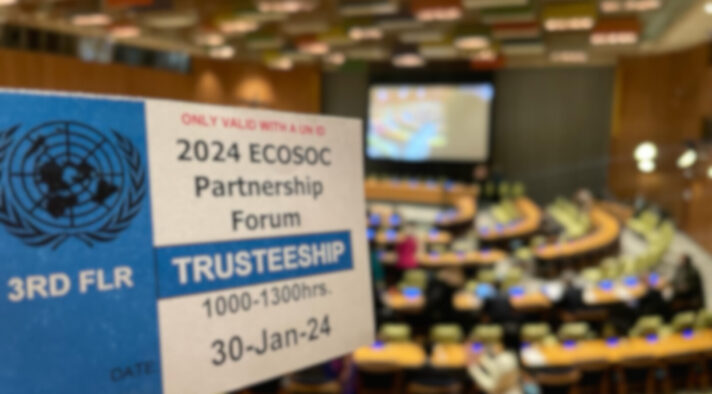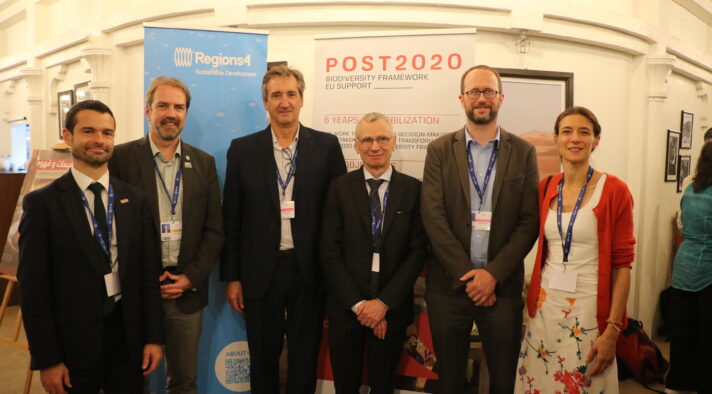The COVID-19 has affected over 170 countries worldwide, with more than 2.4 million people infected and a third of the world population currently under lockdown, the unprecedented global health crisis has become one of the worst episodes of humankind history, highlighting the need to change our perspective and search for new mechanisms that enhance cooperation and collaborative work.
As the pandemic continues to expand globally, regional governments are at the forefront of the fight as they act as the nexus between the national and local levels to provide a coordinated response and mitigate the current outbreak. In this sense, it is crucial for all people to have available the latest information and resources that can help governments lead the way towards de-escalated lockdown measures and a way out of the crisis, as well as a way forward.
Regions4 Secretariat has compiled some of the resources available to date to help regions and other levels of government inform, engage and assess their responses.
UN Report “Social Responsibility, Global Solidarity: Responding to the socio-economic impacts of COVID-19”
The new report, launched by the UN Secretary General Antonio Guterres, is a call to action, for the immediate health response required to suppress transmission of the virus to end the pandemic; and to tackle the many social and economic dimensions of the crisis.
The report outlines three steps to be taken: first, to mount the largest cooperative health response possible, with scientific collaboration to find a vaccine, expand tests, equipment and facilities available and support the multilateral effort led by the World Health Organization. On the second hand, designing fiscal and monetary responses to cushion the economic effects on people’s livelihoods, businesses and the whole global economy and lastly the third step, to learn from the crisis and seize the opportunity to strengthen our commitment to the implementation of the 2030 Agenda, the SDGs and the Paris Agreement to ensure a more inclusive and sustainable future.
For detailed and official information about COVID-19 from the United Nations please follow: https://www.un.org/coronavirus
CoR’s COVID-19 Exchange Platform
The European Committee of the Regions has launched an action plan to assist, inform, engage and represent regions and cities across Europe by:
- Fostering EU support to local and regional authorities in the health sector, via the call for an EU Health Emergency Mechanism
- Making available an exchange platform to foster cooperation and facilitate mutual support between cities and regions across Europe
- Providing through CoR mechanisms concrete feedback from the local and regional level on how to address the health, emergency response, social and economic aspects of the pandemic and their impact on people and their local communities
- Providing regular and practical information to local and regional authorities about EU measures to address the crisis
- Facilitating a reality check on the ground of the EU’s measures to fight the pandemic; gather evidence to improve EU policies based on the experiences of the local and regional level
Check out the platform and how to contribute here.
OECD paper “The territorial impact of COVID-19: Managing the crisis across level of governments”
The paper developed by the OECD Centre for Entrepreneurship, SMEs, Regions and Cities (CFE) focuses on the territorial dimension of the COVID-19 crisis and the importance of the integrated response to the crisis across levels of government. The paper examines how the combination of national and subnational measures and an ability to work together is fundamental for an effective response to this crisis and, ultimately, any future emergency.
Some key insights include:
- COVID-19 and its strong regional impact call for a differentiated government and policies responses.
- Subnational governments are at the frontline of the response, as they are responsible for delivering critical short-term containment measures and more long-term recovery activity –from health and social care to economic development and public investment.
- Subnational governments have a key role to play in mobilising digital tools to better track the pandemic, tracking and testing, and inform decision-making at all levels.
- The medium-term economic impact will also differ across regions, based on a region’s exposure to tradable sectors, global value chains, and type of specialisation, with metropolitan regions showing a relatively higher risk of job disruption than others.
The paper is a living document that will be updated continuously with an updated version set to be released in May. Read the full paper here.
UN/DESA Policy Briefings
The decisions taken now will shape and define the future of nations as governments try to assess how to save people’s lives, without shattering their livelihoods and the overall economies of their territories. In this sense, the UN Department of Economic and Social Affairs experts are working to closely monitor the economic, financial and social impacts of the crisis to advise the UN Secretary General and help Member State navigate the policy choices ahead, in a way the guarantees sustainability and leaving no one behind.
Consult the latest Policy Briefings here.
Regions4 Members Responses
The Regions4 Secretariat commends our members for taking the lead in the response to the crisis to ensure the protection of their citizens while still working towards a sustainable future.
Take a look at a compilation of their latest actions and a message of Regions4 Secretary General here.



